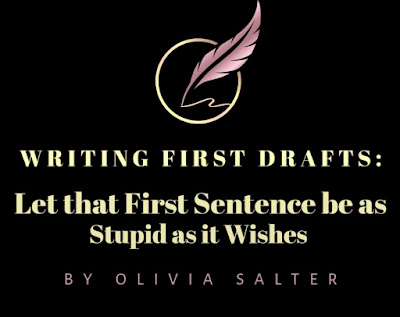Embracing Creative Freedom: Step Out of Your Own Way in Fiction Writing
By Olivia Salter
In the world of fiction writing, one of the greatest barriers aspiring authors face is often their own self-doubt. The inner critic whispers incessantly, warning against the perceived inadequacies of our words, the flaws in our narratives, and the fear of judgment from potential readers. However, to truly embrace the art of storytelling, it is essential to step out of your own way and allow yourself the freedom to create without fear.
Every writer has experienced that moment of hesitation, the paralyzing thought that our work may never live up to our expectations. But what if we reframe this perspective? What if we understood that no one will ever read what we don’t show them? This insight is liberating. It allows us to shift our focus from perfectionism to production, from fear of failure to the joy of creation.
Writing a novel is not merely about crafting a flawless manuscript; it’s about embarking on a journey. This journey is filled with experimentation, exploration, and, yes, even failure. Each word written, regardless of its quality, is a step toward discovering your unique voice. Embrace the notion that it’s okay to write badly. In fact, embracing the freedom to be "bad" can be one of the most freeing experiences in the writing process.
The first draft is often likened to a rough sketch of a masterpiece. It’s a place to dump your ideas, to let your imagination run wild without the constraints of structure or grammar. Allow yourself to write the awkward dialogue, the improbable plot twists, and the characters who don’t quite fit. This unfiltered creativity is where the magic happens. It’s where the seeds of your best ideas can take root and flourish.
Moreover, the act of writing should be enjoyed. Too often, writers become consumed by the fear of not meeting their own expectations or the expectations of others. This fear can lead to writer’s block, frustration, and a stifling of creativity. Instead, prioritize the experience of writing itself. Revel in the act of putting words on paper, of breathing life into characters and worlds that only exist in your imagination.
As you navigate your writing journey, remember that every word you write is a step forward. With each sentence, you are developing your skills, honing your voice, and building the story that is uniquely yours. Allow yourself to be vulnerable and open to criticism, but don’t let it overshadow your creative spirit. Write for the joy of writing, for the thrill of discovery, and for the love of storytelling.
In conclusion, stepping out of your own way in fiction writing means embracing the freedom to create without fear. It’s about letting go of perfectionism and allowing yourself to write with the understanding that no one will read what you don’t share. So, pick up that pen or keyboard, and dive into your novel. Write boldly, write freely, and most importantly, enjoy the journey. Your story deserves to be told, and the world awaits the magic that only you can create.





